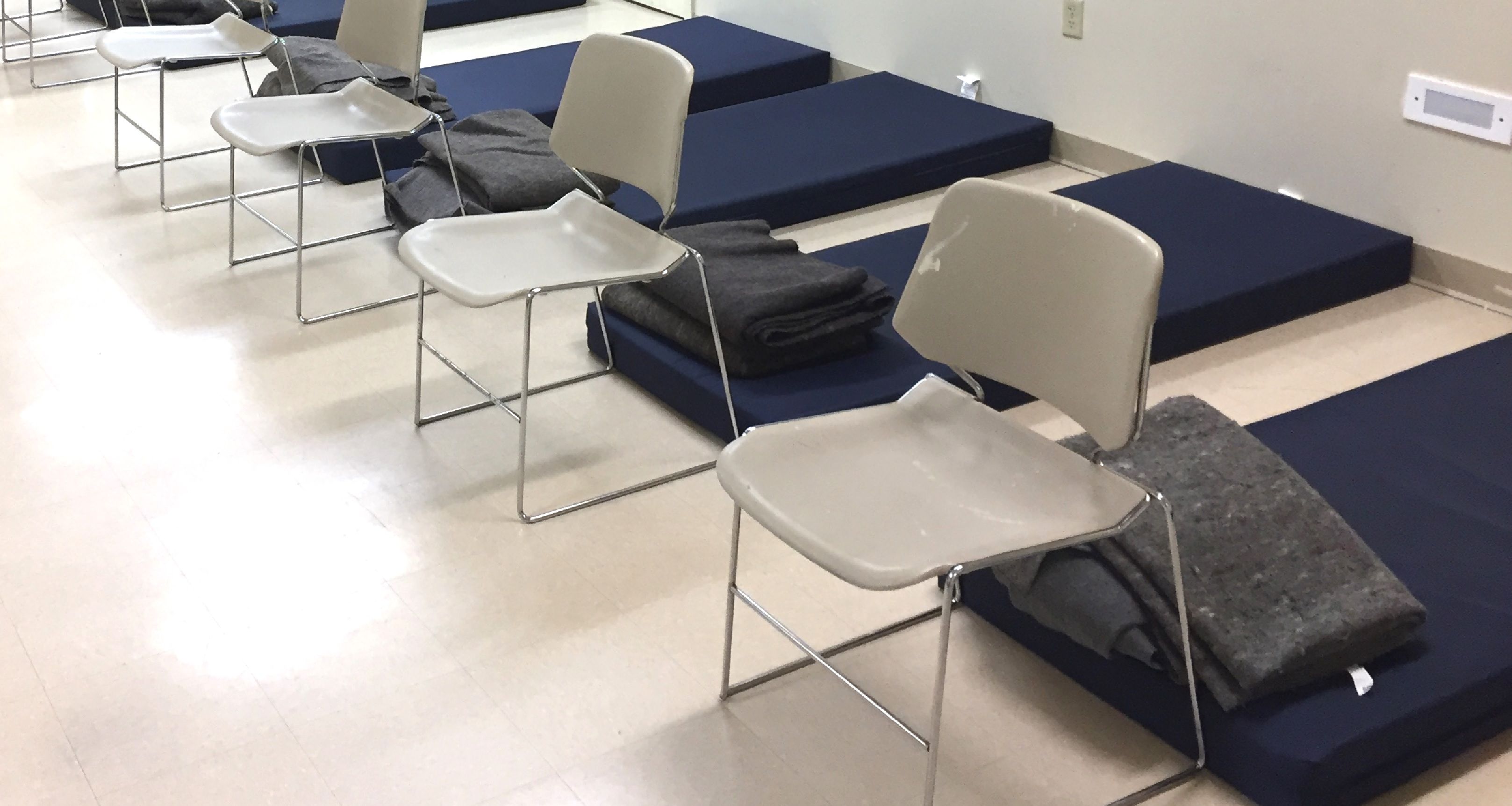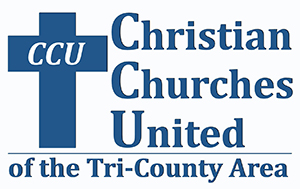
It was 6:30 in the morning, and I was at our Winter Overnight Safe Haven (WOSH), a warm, dry sleeping space for men on the street. Each night during the cold winter months, two volunteers help staff the WOSH (setting out mats and blankets, making coffee, welcoming overnight guests, sleeping onsite, then cleaning up the next morning).
The volunteers vary each night. All come from local churches or civic clubs. Just before Christmas I volunteered overnight with my church. This week it was my Rotary club’s turn to fill the overnight volunteer slots.
Jonathan, a regular overnight guest, took me by the hand, looked me in the eye, and said “words cannot express how grateful we are that you do this…I know it’s a significant time commitment, and I just want to say thanks.” Then Jonathan headed out the door into the cold morning air on his way to St. Patrick’s Cathedral, one of our member churches, for a free community breakfast.
“Words cannot express…” Jonathan is living on the streets and needed to get to breakfast. But he made sure to offer gratitude.
I told the men I wanted to share some of their stories in our newsletter, to help others understand their reality. No pressure. I would change their names. I was curious to hear from those who wished to share.
I asked Tom how long he had been homeless, living on the streets. “Too long,” was his response. He spoke of trying to find an apartment he could afford. The last place he looked into had a bed bug problem.
“The financial situation is tough. I’m so focused on how to get a bath and fill my belly. Then I have my own depression to deal with. It’s a hard situation. We’re individuals and we want respect. You don’t know what people are going through.” Tom says he’s been back and forth living on the street for...too long.
Martin’s situation is quite different. He’s been homeless for just a few weeks. He had a good job in sales, driving all day long. Then he totaled his car and had no way to work. He laments he wasn’t saving money. He lost his apartment. “I’m talking to a friend and hoping I’ll have a place to stay by the end of the week, then I can get a car.” He hopes to get his old job back. But he’s working a temp job now, trying to save for a car. He adds, “If you’re working full-time you don’t get to eat if you’re homeless. You have to buy premade food because there is no place to cook. I spend more money on food now than when I had my own apartment. Everything is more expensive when you’re homeless.”
There is a sense of comradery at the WOSH. While there is the occasional tiff, the overnight guests mostly get along together. They help set-up and clean up. And they look out for each other.
Jonathan becomes aware that Mario just became homeless. Jonathan explains where to get meals the next day, and where to get help with reacquiring an ID, something he lost along the way. He finds someone to show Mario around town.
Spending the night at the WOSH is always an impactful experience for me. As Jonathan said, “words cannot express…” how thankful we are for everyone who volunteers to ensure men have a warm, dry place to sleep. My life is enriched by meeting and talking with the men who spend the night. They impact me with their insights and tenacity. And as Jonathan shakes my hand, I’m reminded of Jesus word’s in Matthew 25: 35;40 (The Message): “I was thirsty and you gave me a drink, I was homeless and you gave me a room...I’m telling the solemn truth: Whenever you did one of these things to someone overlooked or ignored, that was me—you did it to me.”





